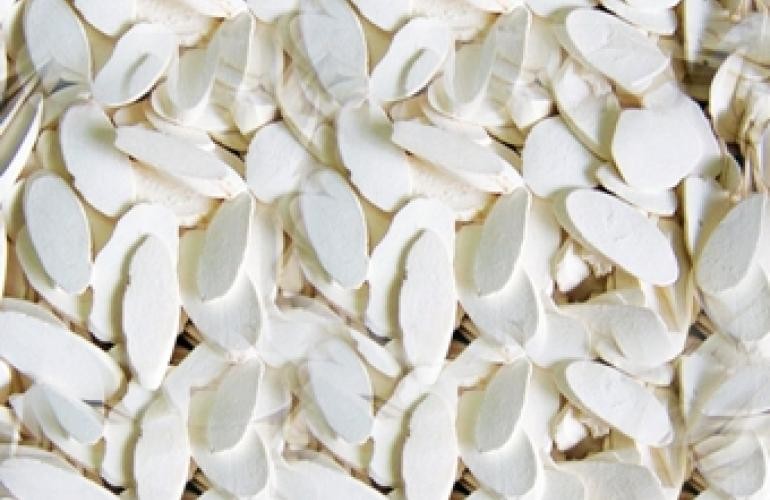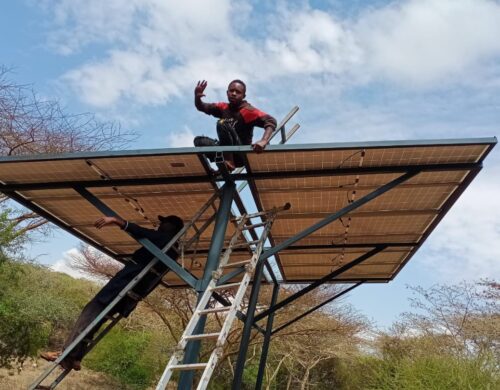Hybrid Solar Dryers For Sale In Kenya
Hybrid solar dryers for sale in Kenya by Grekkon Limited are active dryers designed to dry quicker, all year round. They are augmented units of the conventional passive solar dryers. The company has three types of hybrid solar dryers for sale in Kenya
- Solar powered. These units have a solar powering system that runs the extraction and exhaust fans. The fans provide better movement of air within the dryer, and removal of the moisture from the drying produce. This hastens the drying process
- Biomass powered. They have a biomass burning unit connected on the exterior. Biomass in the form of brickettes or charcoal heats water which produces steam that travels in tubes within the dryer. This heats up the air in the dryer, accelerating the dring process. Biomass powered dryers can be used at night or on cloudy, rainy or cold days when there is insufficient sunshine to dry
These hybrid solar dryers cost in Kenya ranges from Kes 135,000 to Kes 1,500,000. These hybrid solar dryers for sale in Kenya are for a carrying capacity of 100kgs through 1,000kgs
Hybrid Solar Dryers For Sale In Kenya
Solar Dryer Materials
- Light UV treated translucent polythene paper to allow heat and light. The paper also has anti-drip treatment to prevent dew formation which causes moulds to form on food
- Heavy UV treated geomembrane to conserve heat
- Steel bars galvanized with food-grade aluminum or zinc for food safety
- UV treated heavy gauge netting to prevent insect pests from entering

A hybrid solar dryerwith both an external biomass heating units, and a solar power system
Hybrid Solar Dryers For Sale In Kenya
I. What is hybrid solar dryer?
It is a conventional solar dryer that receives additional drying power from an external source. This could be biomass, solar or electricity
II. What are the three types of solar dryers?
- Natural / conventional solar dryers. These dry using only the power of the sun
- Forced / active dryers. They are augmented versions of the conventional solar dryers
- Portable or fixed solar dryers
III. How does a vegetable dryer work?
- Heat
They allow in diffused heat from the top and the sides, which heats up the air coming in from the air inlet. This hot air will exit with moisture in the air outlet.
- Anti-drip management
Our UV treated polythene cover has anti-drip properties so water droplets do not form on it. It prevents dripping on the drying food which is a precursor for fungal development
IV. What does a solar dryer do?
Grekkon Limited’s solar dryers reduce the moisture content to less than 12% in these products;
- Plantation crops; coffee, rice, cassava
- Vegetables; tomato, onion, garlic, brassicas, hot peppers
- Cereals; sorghum, and millet
- Herbs; moringa, mint, rosemary
- Oil crops; groundnuts, sunflower, macadamia, cashew nuts
- Others; mushrooms, fish, beef, mutton
V. How do you dry vegetables with solar?
- Wash the vegetables to remove all dirt
- Ensure there are no insect pests present
- Remove any diseased parts or produce
- Cut or grind them into smaller pieces to increase the drying surface area
Place them in the solar dryer holding trays

Dry cassava chips
VI. What is the most popular use of solar dryers?
To dry fruits, mushrooms, vegetables, herbs, spices, coffee, cassava, banana and fish. Banana and cassava are further processed into food flour. A solar dryer ensures that the food is free of any external contamination
VII. What are the main applications of a solar dryer?
Besides vegetables and fruits, commercial solar dryers in Kenya are for fish, root crops and mushroom drying. Commonly dried foods in Kenya through our solar dryers are:
i. Banana, cassava, pumpkin, millet, and sorghum to make food flour. Dried cassava is also processed for industrial starch manufacture
ii. Moringa as a medicinal herb
iii. Tomato, capsicum, traditional vegetables, kales, and spinach as vegetable nutrients
iv. Mango, papaya, as dried fruits for snacking
v. Omena which is the silver cyprinid fish for both human consumption, and as additive to animal feed
vi. Coffee so that it’s suitable for milling. Coffee solar dryers are the largest, each holding over 5 tons of berries per drying session
Related Posts
Low Cost Solar Dryers
Grekkon Limited is the largest supplier of low cost solar dryers for agricultural products in Kenya . These low cost solar dryers work on...

Solar Dryers For Fruits And Vegetables
Grekkon Limited's hybrid solar dryers for fruits and vegetables in Kenya are designed to dry faster than the conventional or natural solar...
